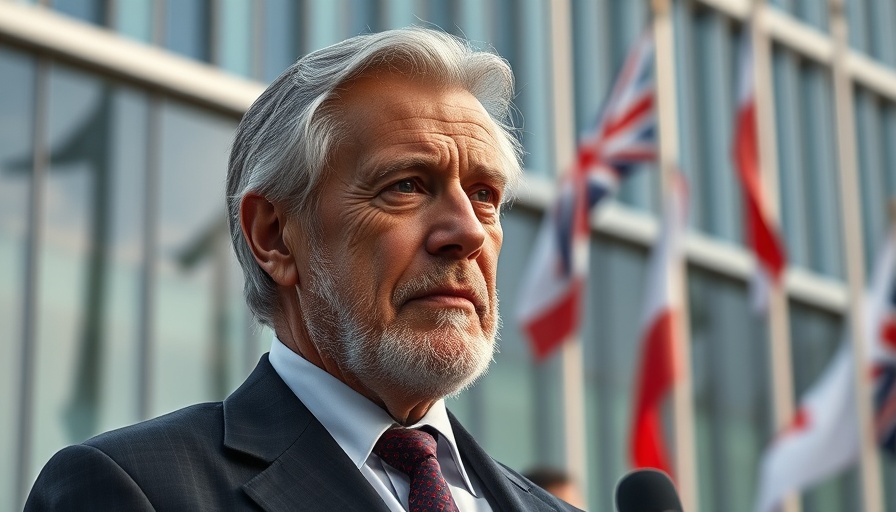
Understanding the Funding Crisis in UN Peacekeeping
The United Nations (UN) has long been regarded as a beacon of hope for maintaining global peace and security, yet it finds itself facing a dire funding crisis. Secretary-General Antonio Guterres's recent appeal for member states to honor their financial obligations to peacekeeping operations highlights a pressing issue: the need for predictable and sustained funding to support vital missions across the globe.
In 'UN chief pleads with countries to pay their share for international peacekeeping,' we delve into the funding challenges faced by the UN, sparking further discussion around the implications and necessary actions required.
The Cost-Effectiveness of UN Peacekeeping
Despite comprising just half of one percent of global military spending, UN peacekeeping missions remain one of the most cost-effective mechanisms for fostering peace. This is especially significant given the vast resources allocated to military expenditures worldwide. The UN currently oversees 11 operations in conflict zones such as the Central African Republic, South Sudan, and Kosovo, yet these efforts are hampered when financial contributions fall short.
Exploring the Implications of Delayed Payments
When member states fail to pay their share promptly, it leads to liquidity issues that threaten the operational capacity of peacekeeping forces. These financial uncertainties can impede peacekeeping mandates and diminish the effectiveness of missions. Countries like the United States, historically significant contributors, have fluctuated in their support under various political regimes, sparking concern about the consistency of funding sources.
Meeting Today’s Global Challenges
Guterres’s assertion that peace operations can only thrive with robust support is timely, given the increasing complexity of conflicts worldwide. Countries like South Sudan and the Democratic Republic of Congo face multifaceted crises, necessitating a network of resources, logistics, and unwavering financial support. Without adequate funding, peacekeeping teams struggle to implement their mandates effectively.
The Role of Member States in Strengthening Peacekeeping Operations
The call to action implores member states not only to contribute financially but also to adhere to a standard of accountability. Each nations' commitment to fulfilling its obligations could alleviate some of the operational strains currently experienced by peacekeeping missions. It becomes imperative for nations to view their contributions not as an option but as a fundamental obligation to global peace and security.
Considerations for Future Peacekeeping Initiatives
As we consider the future of peacekeeping operations, it is vital to explore innovative funding mechanisms that enhance flexibility while ensuring sustained support. This may include public-private partnerships or appeals for humanitarian funding that address specific needs arising from peacekeeping operations. Furthermore, accountability and transparency in how funds are utilized can foster trust among contributing nations and encourage timely payments.
Bridging Governance Gaps in Conflict Zones
For countries embroiled in conflict, effective governance can foster stability and prevent future disruptions. Incorporating local stakeholders’ voices and addressing systemic issues through grassroots initiatives could significantly contribute to the success of peacekeeping missions. International bodies must couple military support with diplomatic and developmental strategies to ensure holistic peace processes.
The Importance of International Cooperation
The landscape of global governance is changing, demanding stronger collaborations among nations. International institutions like the UN must recalibrate their approach to foster unity of purpose among member states. This can be achieved by sharing success stories and emphasizing the need for collective action to address pressing issues such as climate change, economic discrepancies, and human rights—underlining the intersectionality of these challenges with peace and security.
In conclusion, as we approach an era where global interdependence is becoming increasingly evident, the onus lies on all nations to recognize the critical role of UN peacekeeping missions in fostering a secure environment for nations to thrive. The commitment to timely and full contributions is not solely a matter of financial support but an investment in a collective future of peace.
 Add Row
Add Row  Add
Add 




Write A Comment